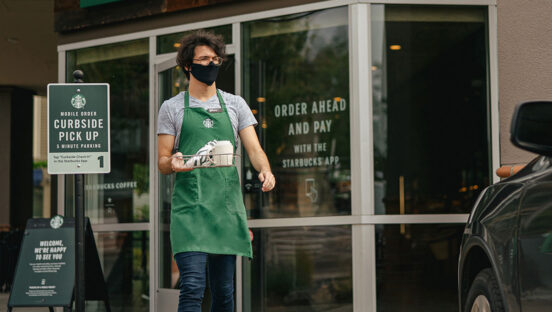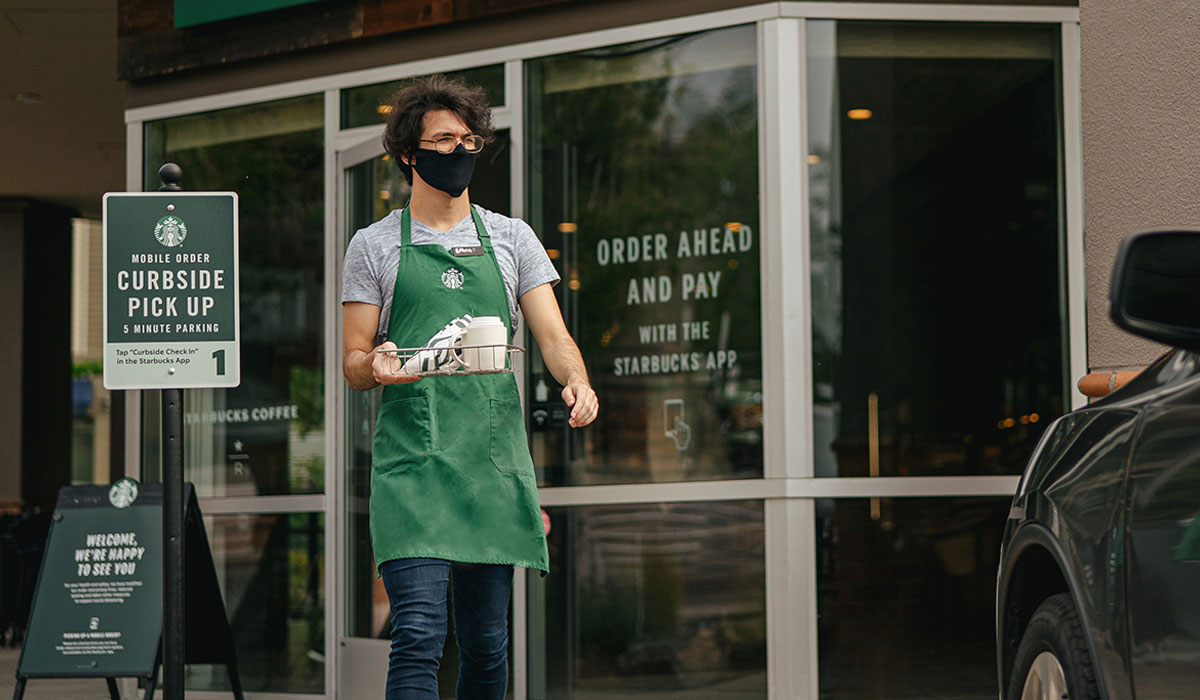Starbucks announced that its requiring U.S. workers to be fully vaccinated by February 9 or undergo weekly testing to meet the requirements laid out by the Biden administration.
Approximately 228,000 employees must show their vaccination status by January 10, according to a letter from COO John Culver. Starbucks said if an employee chooses to undergo weekly testing, they must pay the costs and are responsible for submitting results. In the case that one tests positive, the company is offering two rounds of paid isolation time, each up to five days.
“I recognize that partners have a wide spectrum of views on vaccinations, much like the rest of the country,” Culver said in the message. “My responsibility, and that of every leader, is to do whatever we can to help keep you safe and create the safest work environment possible.”
The federal mandate, which was officially announced in November, requires employers with 100 or more employees to ensure workers are fully vaccinated or that they undergo weekly COVID testing. The new rule calculates employee count based on companywide numbers instead of per location. For example, a restaurant with multiple company-run stores (8,000 in Starbucks case) would include all employees at all locations.
The measure was challenged in court and blocked by the Court of Appeals for the Fifth Circuit. However, a number of other lawsuits against the mandate were filed in other districts, as well, so all complaints were pulled together and sent to the Sixth Circuit at random. That panel of judges decided Biden’s administration had the power to enforce the measure.
In response, the Occupational Safety and Health Administration (OSHA) said it will give employers more time to come into compliance by choosing not to issue citations for any requirements before January 10 and not to issue citations for noncompliance with testing requirements before February 9. The Supreme Court is scheduled to hear arguments on the vaccine mandate this Friday.
“This is an important step we can take to help more partners get vaccinated, limit the spread of Covid-19, and create choices that partners can own based on what’s best for them,” Culver said. “If vaccination rates rise and community spread slows, we will adapt accordingly. But if things get worse, we may have to consider additional measures. For now, my hope is that we will all do our part to protect one another.”









